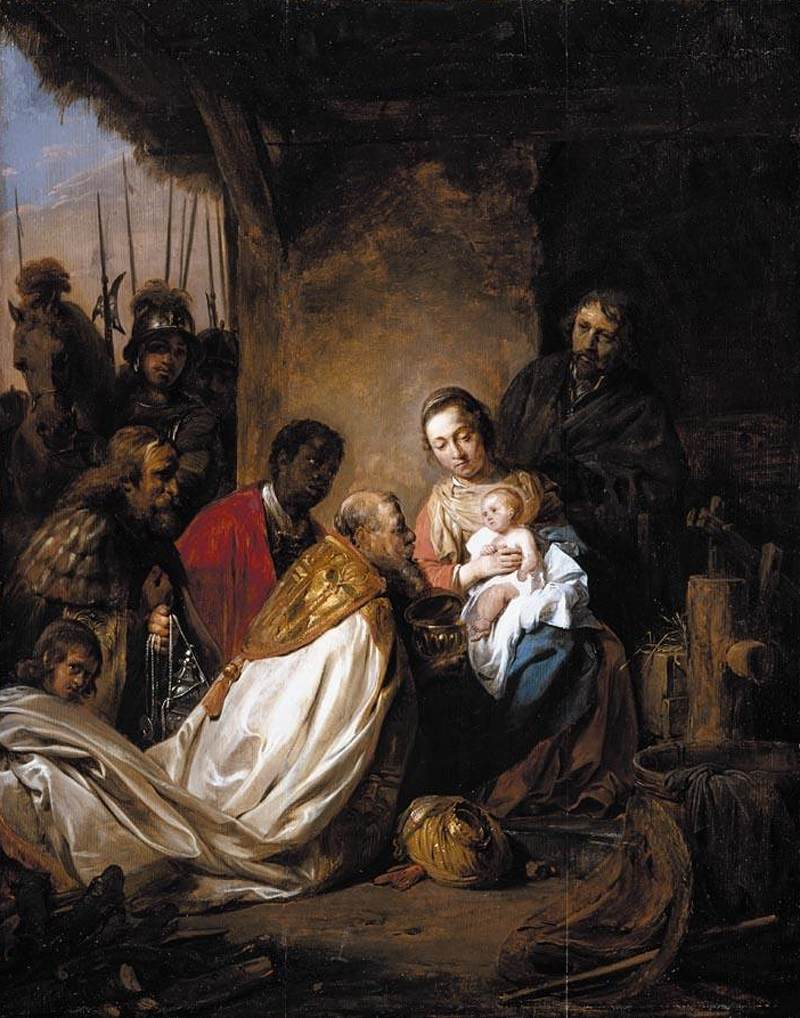I’ve often said the blog is a hungry beast. It wants to be fed three times a day, and this has been a super busy weekend for me so there’s been no blogging.
All day Saturday and Sunday I was helping at the Marian-Eucharistic Conference in Greenville. Friends Al Kresta and Patrick Madrid were there, and it was good to meet Fr Wade Menezes of the Fathers of Mercy and Fr Chris Altar from the Divine Mercy Shrine in Stockbridge.
All this combined with the usual Masses on the weekend and the build up to the launch of my book Mystery of the Magi. Then this morning I had a call from a film producer to discuss a three part documentary on the Magi book.
Therefore, for a blog post this morning a bit more about the Magi book and why it is important. This book is about much more than the three wise men.
Since the advent of modern Biblical criticism, it has been fashionable place the date of the New Testament as late as possible and imagine that the stories of Jesus had become mythologized. If they were rooted in history, there was little of that history that could be recovered. The Magi story was the one story that everyone considered to be a fanciful fairytale. The tale of mystical wizards from the east who followed a miraculous star was just too good to be true.
Consequently several generations of Bible scholars regarded most of the gospel rather like we regard a book like T.H.White’s Once and Future King — a fanciful imaginative tale about a character who perhaps might have existed somewhere back in the mists of time.
The fact is, however, that an increasing amount of hard facts have come to light over the last fifty or sixty years. Advanced techniques in archeology, textual research, forensics, discoveries in linguistics and cultural history have all come together to increasingly substantiate the gospel narratives. More and more scholars of a new generation are finally admitting that the gospels were written just a few decades after the life, death and resurrection of Jesus, and that they faithfully and reliably recount the historical details of the time.
My book Mystery of the Magi is therefore not simply about the three wise men. It takes the one tale which, most of all, was considered fanciful and builds a careful, logical and convincing argument for the simple historical reality of the Magi story. At the same time it dismantles the many legends and myths that grew up around the Magi story.
These myths developed from later gnostic apocryphal infancy narratives and have no basis in history at all. When you read these myths like Revelation of the Magi uncovered and translated by Brent Landau you realize they have about as much connection with the real events as Disney’s Sword in the Stone has with the historical King Arthur.
Unfortunately these gnostic myths influenced the Western tradition. Much of what we take for granted in the Magi story we all love comes from these gnostic myths–not from Matthew’s gospel. The idea of three wise men, that they were kings, that they were named Balthasar, Melchior and Caspare, that their relics are in Cologne Cathedral, that they came from Persia, India or Africa and that they went on a long desert trek on camels….none of that is in Matthew’s gospel. These are much later accretions and legends that were read back into Matthew’s simple account.
My book strips away the legends and myths and views Matthew’s account through the geography, politics, economics and culture of the time and comes up with a convincing theory–that the wise men came from the neighboring culture of the Nabteans, and that they had very strong and realistic motivations for making their journey to Jerusalem.
This is important because it supports the essential historicity of the gospel accounts and should make everyone take a fresh look at the Magi story. Those who love all the traditions will be disappointed perhaps to learn that they are not historical, but those who believe the whole story is pious hokum will also be disturbed to learn that there really were Magi, that they were an ordinary part of ancient Middle Eastern culture and that their journey to Jerusalem was not very magical and mystical, but practical and real.
Go here to purchase the book directly from my website. Donor-Subscribers receive a 15% discount and may request signed copies.
Amazon has the book here and the audio book is available here.







Looking for coupon code as I am a subscriber.
You should have received a coupon code with a welcome email immediately after subscribing. If you think you did not receive that email it might have gone to your junk email box. Let me know if you find it.
Hey Father, I’m sorry … I didn’t find it. Can I get a resend?